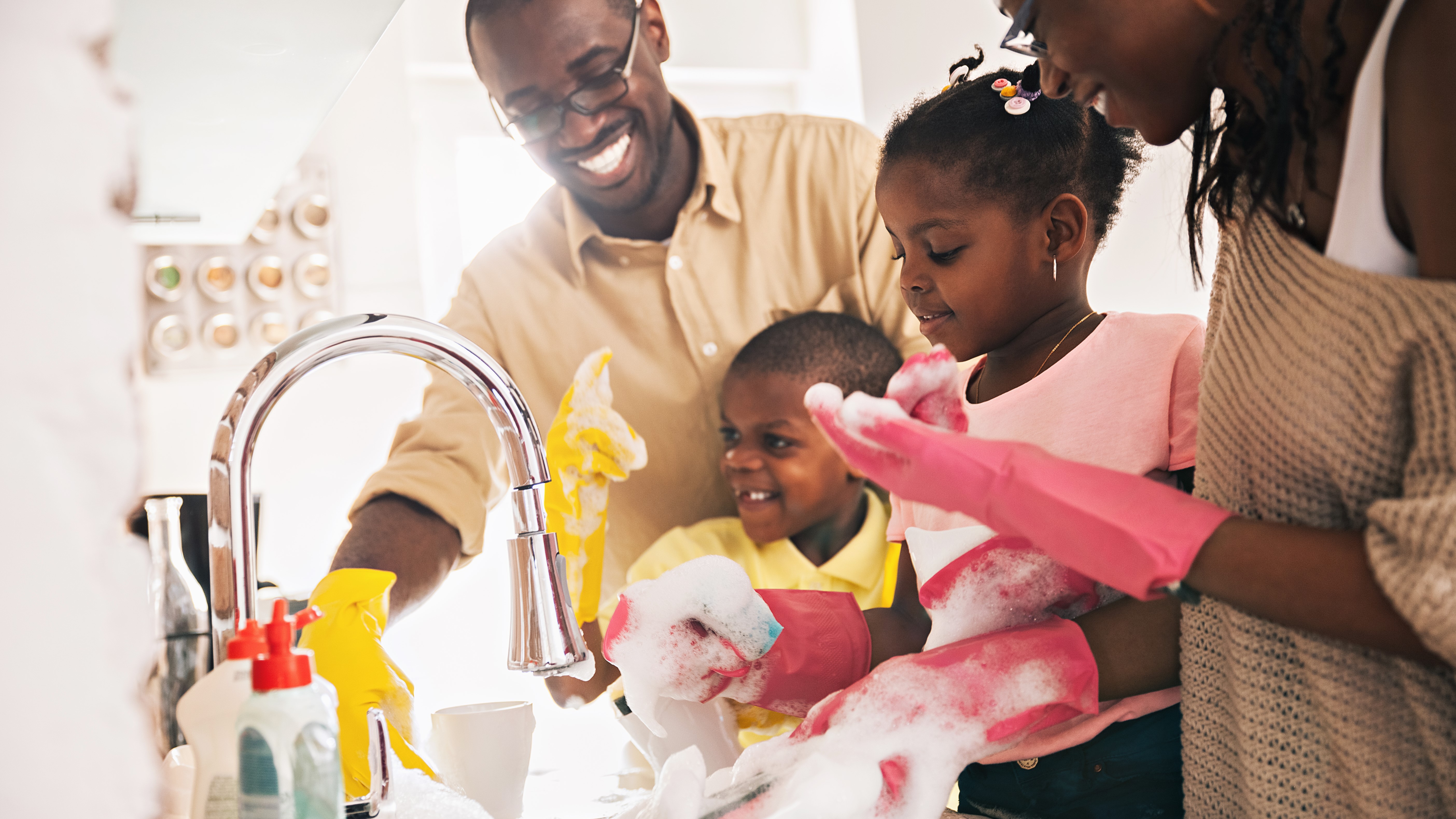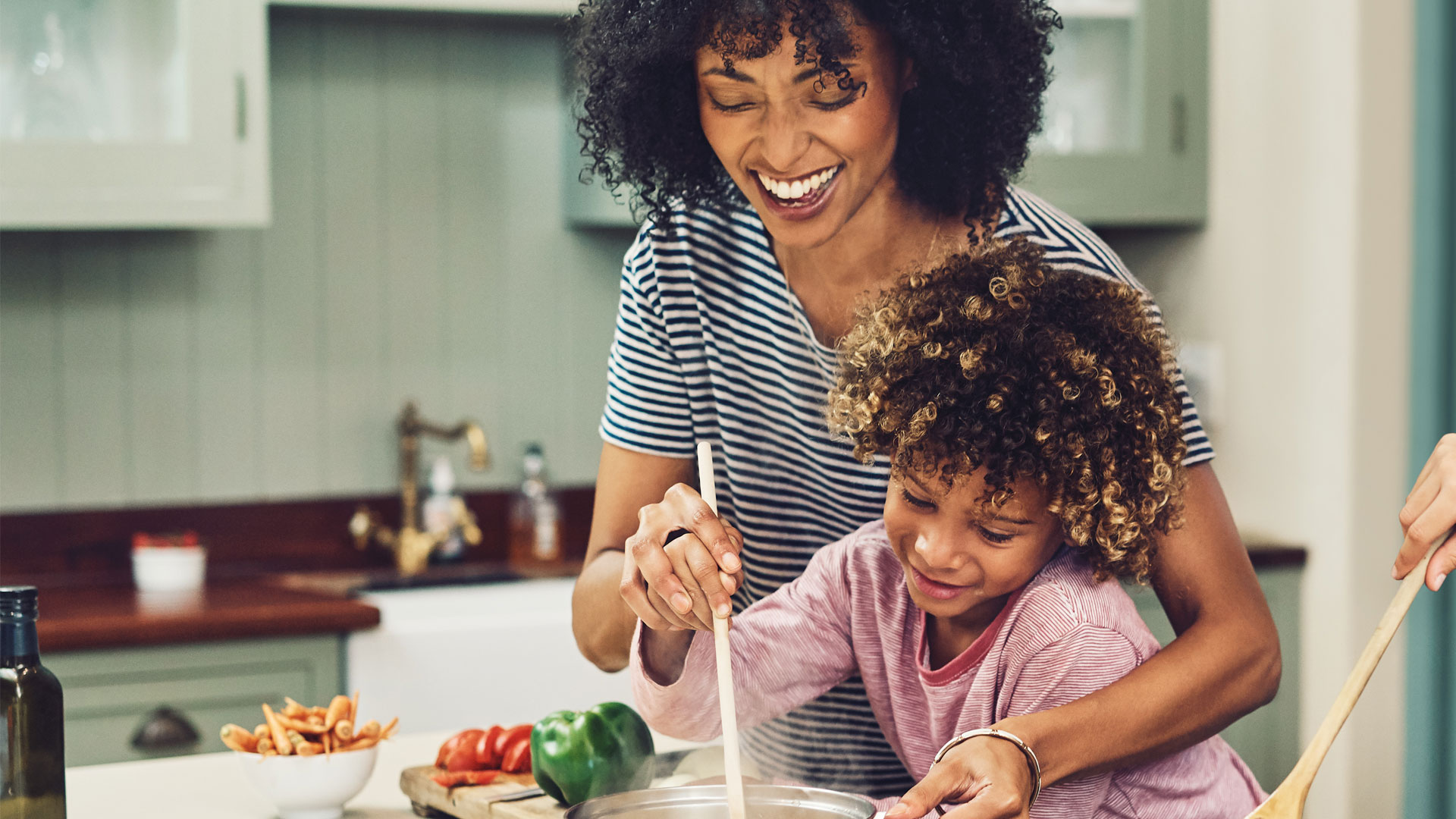The best household chores to help kids develop at every age, according to a child psychologist
How to help your child's social, emotional, and cognitive development using household chores.

How do you get kids to do chores around the home? Other than treats, money and "because I told you to", parents can often be left scrambling for ways to get kids involved in household chores. Luckily (for some), Whirlpool has given parents a good reason to have the whole family helping out. In a new paper, the number one selling kitchen appliance manufacturer in the US found that chores are essential sources of social, emotional and cognitive benefits for kids. Despite that, however, the number of children regularly completing chores has decreased from 79% in 1997 to 70% this year - which is troubling as lockdown sends dirty dishes piling sky high.
Speaking to developmental psychologist and child development expert Dr Richard Rende, Whirlpool found that the key to getting kids to complete chores could be re-framing them. Chelsey Whitehead, Whirlpool’s senior brand manager, has suggested that "chores have a bit of an image problem". They key to overcoming this, in her view, is "inspiring parents to view chores as a springboard to some really positive outcomes for their children."
The best chores for your child

According to Dr Rende, the cognitive and social benefits of chores vary by age. This could be a big help for families with kids of different ages - from loading the dishwasher to helping separate colors from whites while loading your washer dryer combo, there are some real advantages across various age groups.
Toddlers (ages two to four)
Dr Rende’s research has found that chores which work with a toddler’s natural tendency to help others "can be nurtured in a home environment where toddlers can spontaneously assist". That means random and short-term tasks which can be done with assistance are winners in fostering that helpful spirit. Often these tasks can help develop motor and perceptual skills.
- Set the dinner table
- Sorting laundry (Dr Rende mentions pairing socks)
Young kids (ages five to eight)
For young children, it’s all about teamwork. Studies have shown that "kindergartners who participate in chores show higher levels of self-competence, better peer relationships and advanced prosocial behaviors by the third grade." Opt for chores which will develop cognitive skills and reinforce the importance of working with others.
- Folding laundry
- Measuring ingredients on food scales during meal prep
Older kids (ages nine to 12)
According to Dr Rende, chores can provide access to key skills in math, science, technology, and even art for older kids. He suggests that fun tasks like cutting pizzas will help teach fractions, and following a recipe is a great way to learn about trial and error.
- Meal prep
- Loading a front load washing machine
- Transferring clothes to the dryer
If helping your kids learn at home is on your mind, we've also covered the top five activities which will keep kids busy all day. We are increasingly spending more of our lives at home, and with school-time likely to be inconsistent during the coronavirus pandemic, parents may be looking for any opportunity to help their children learn at home.
Sign up to receive the latest news, reviews, buying guides and deals direct to your inbox

Millie Fender is Head of Reviews at Top Ten Reviews. She also works on our sister sites: Real Homes, Ideal Home, Homes & Gardens, and Livingetc. As Head of Reviews, Millie is on a mission to make sure that we are reviewing all of the latest and greatest products for you and your home, whether it's a vacuum cleaner or an inflatable hot tub.
